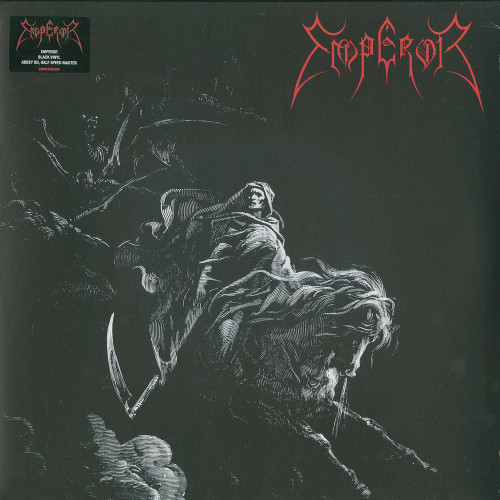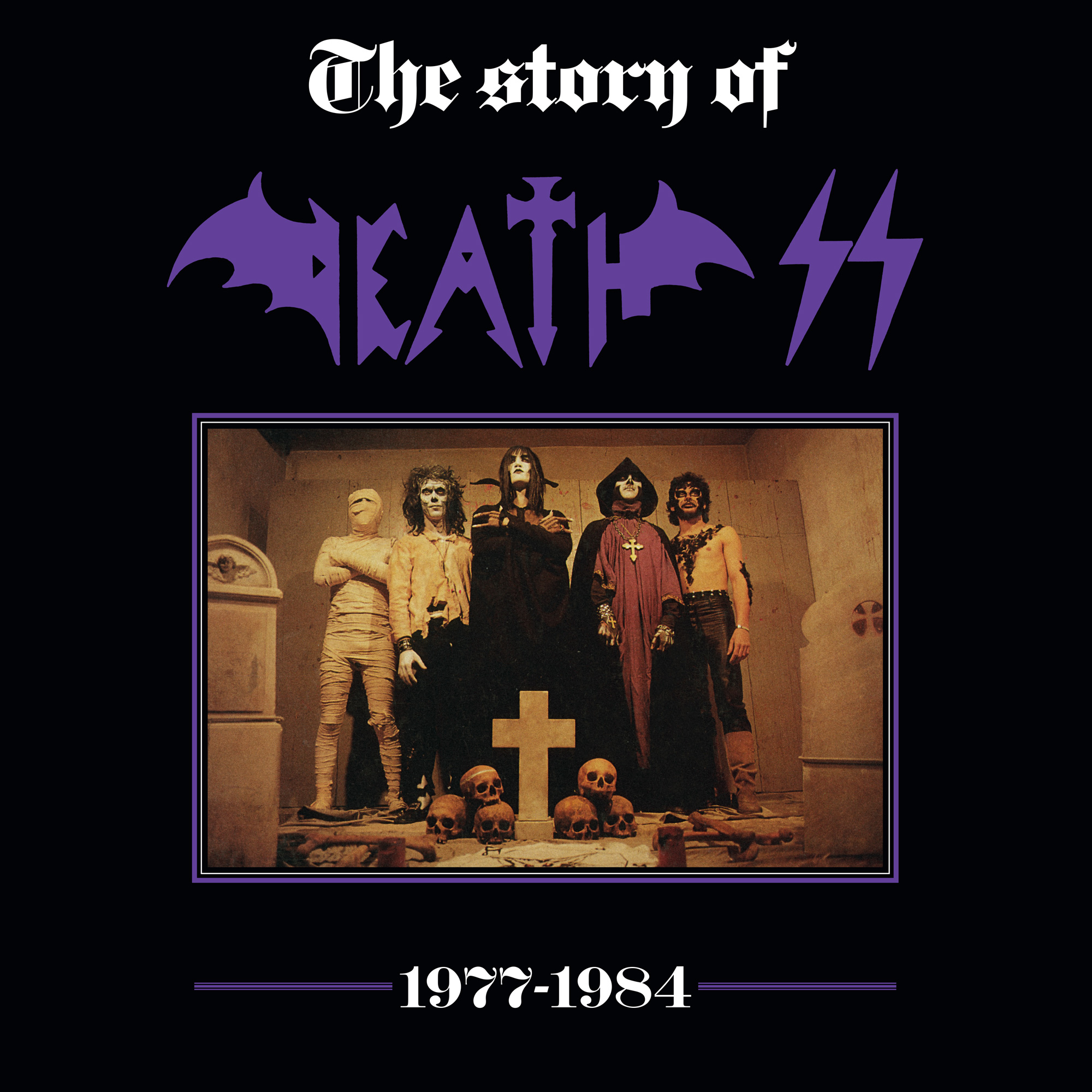Blasphemy “Blood Upon the Altar” and “Gods of War” CD Out Now
Blasphemy “Blood Upon the Altar + Bonus” CD
ANTI-GOTH 398
CD version includes “Blood Upon the Soundspace” rehearsal as bonus.
(Description by J. Campbell)
Although Blasphemy’s recorded output was limited, its endurance over the last three decades is a testament to its originality and extremity, and it all began with the Blood Upon the Altar demo. The band’s origin was unremarkable but auspicious. In 1984, founding members Nocturnal Grave Desecrater and Black Winds and 3 Black Hearts of Damnation and Impurity, who lived near one another and were already acquainted, began playing music together, mostly working on cover songs. They soon recruited Caller of the Storms and Black Priest of the 7 Satanic Blood Rituals to complete the original lineup. After briefly adopting the name Antichrist, the band eventually settled on the simple and iconic name Blasphemy and began writing songs. They refined their sound and focused their songs during live rituals over the next several years, although the lineup would fluctuate slightly when Black Winds did a brief stint in jail, and Bestial Savior of the Undead Legions briefly assumed bass duties. Black Winds soon rejoined the fold, and Blasphemy entered Fiasco Bros. studio in 1989 with an $800 budget. They emerged having produced one of the most devastating demo recordings ever made. Blood Upon the Altar ushered in a new style of Black Metal, no less dark or evil than their contemporaries, but more confrontational, more violent. In addition to being heavily inspired by Bathory, Sodom, and Slayer, Blasphemy also drew from the punk infused Brazilian scene, especially Sarcófago, as well as Grindcore bands like Blood and Genocide (Repulsion). The resultant mixture of these influences yielded a demo that established a new standard for extremity in Black Metal, a bar that Blasphemy would continue to raise with each subsequent recording. This edition of Blood Upon the Altar marks the first time since its original release that it has been properly featured as a stand-alone album. For far too long, this demo was tacked as bonus tracks onto the end of the Gods of War album, leaving the impression that Blood Upon the Altar was of lower stature; in fact, for many, Blood Upon the Altar is the most powerful Blasphemy release of all. Additionally, many of the earlier reissue editions of this recording had long gaps between the tracks owing to an improperly prepared digital master, but that flaw has been corrected with this version, which was also remastered by James Plotkin to ensure the best possible sound. Finally, the original demo artwork once again adorns the cover of this LP, which also features a full-color gatefold. In every respect, this version—a joint release by NWN! and Ross Bay Cult—seeks to restore Blood Upon the Altar to its original status as one of the most significant Black Metal recordings of all time.
Blasphemy “Gods of War” CD
ANTI-GOTH 399
(Description by J. Campbell)
Sometimes overshadowed by the masterful Fallen Angel of Doom LP, Blasphemy’s second and final album, Gods of War, is no less a masterpiece. As often happens to bands that are ahead of their time and don’t fall in line with the trends of their day, Blasphemy suffered setbacks following the release of their debut—most notably was the acrimonious relationship between the band and Wild Rags records. Although Fallen Angel of Doom sold very well, Blasphemy received virtually no royalties from the label, and the band sought out a new label to release its sophomore album. Having already released some of the most significant Black Metal albums of the early 1990s, Osmose was a promising choice for Blasphemy, and a deal was made. In the fall of 1992, Blasphemy returned to Fiasco Bros. studio, this time with a larger budget than they had available for their previous recordings. The core lineup consisting of Nocturnal Grave Desecrator and Black Winds, Caller of the Storms, and 3 Black Hearts of Damnation and Impurity all took part in the Gods of War sessions; however, Black Priest of the 7 Satanic Rituals, who played second guitar on Blood Upon the Altar, and Traditional Sodomizer of the Goddess of Perversity, who played guitar on Fallen Angel of Doom, both left the band prior to the second album. Rather than bring in a second guitarist, the band was joined by bassist Ace Gustapo Necrosleezer and Vaginal Commands, leaving Black Winds able to focus exclusively on his vocals. The immediate force of the Gods of War album is undeniable. At just over 20 minutes in length, it is as succinct and powerful a statement as any Black Metal. On prominent display are the band’s Grindcore influences, with several of the tracks clocking in at under one minute. The album also features re-recordings of four tracks from the Blood Upon the Altar demo, this time with fuller production. Overall, Gods of War features the most aggressive performances and the heaviest sound of Blasphemy’s studio output. This edition of the Gods of War album is also noteworthy because it marks the first time that NWN! has had the honor of releasing it since acquiring the rights to the recording from Osmose. To mark the occasion, NWN! has endeavored to repackage the release with a layout that is more in keeping with Blasphemy’s previous releases, and more consistent with the band’s original vision.




